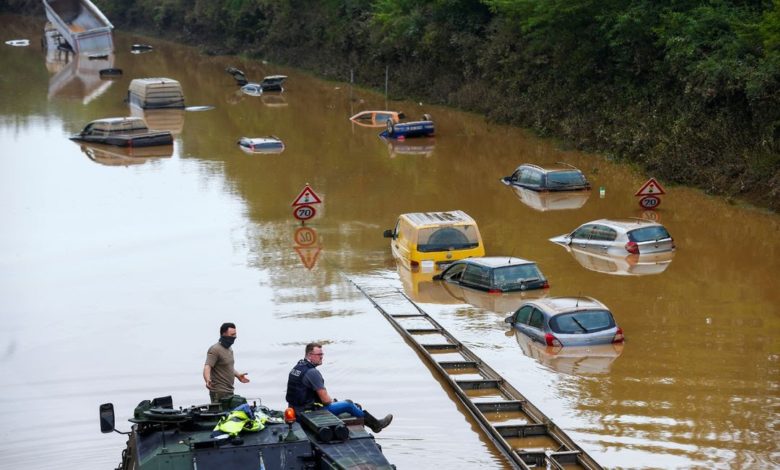UN Climate Report: A Code Red For More Action
The UN's Intergovernmental Panel on Climate Change report warns that human activities are increasing global warming and causing severe changes, however, significant cuts in gas emissions can avert climate catastrophe.

The new report from the Intergovernmental Panel on Climate Change (IPCC) highlights the severity of climate change and the need for more action towards mitigation and adaptation.
The United Nations-led report published on Monday warns that many of the changes observed in the climate are unprecedented in thousands, if not hundreds of thousands of years, and some of the changes already set in motion—such as continued sea-level rise – are irreversible over hundreds to thousands of years.
“However, strong and sustained reductions in emissions of carbon dioxide (CO2) and other greenhouse gases would limit climate change. While benefits for air quality would come quickly, it could take 20-30 years to see global temperatures stabilize,” according to the report.
The report, described as the most up-to-date physical understanding of the climate system and climate change found that emissions of greenhouse gases from human activities are responsible for approximately 1.1°C of warming since 1850-1900, and pointed out that averaged over the next 20 years, global temperature is expected to reach or exceed 1.5°C of warming.
The report highlights that cutting global emissions, starting immediately, to net-zero by mid-century would give a good chance of limiting global warming to 1.5C in the long term and help to avoid the worst effects of climate change.
According to the Working Group Co-Chair Panmao Zhai, “Stabilising the climate will require strong, rapid, and sustained reductions in greenhouse gas emissions, and reaching net-zero CO2 emissions.”
“Limiting other greenhouse gases and air pollutants, especially methane, could have benefits both for health and the climate.”
The UN Secretary-General Antonio Guterres’ statement on the report described it as a “code red for humanity.”
“The alarm bells are deafening, and the evidence is irrefutable: greenhouse gas emissions from fossil fuel burning and deforestation are choking our planet and putting billions of people at immediate risk. Global heating is affecting every region on Earth, with many of the changes becoming irreversible,” Guterres said.
The UN chief added that the solutions were clear. “Inclusive and green economies, prosperity, cleaner air and better health are possible for all if we respond to this crisis with solidarity and courage.”
“All nations, especially the G20 and other major emitters, need to join the net-zero emissions coalition and reinforce their commitments with credible, concrete and enhanced Nationally Determined Contributions and policies before COP26 in Glasgow.”
The UN COP26 summit, scheduled to take place in Glasgow in Nov. 2021, is expected to bring together heads of state, climate experts and activists to agree on a coordinated effort to address climate change.
Support Our Journalism
There are millions of ordinary people affected by conflict in Africa whose stories are missing in the mainstream media. HumAngle is determined to tell those challenging and under-reported stories, hoping that the people impacted by these conflicts will find the safety and security they deserve.
To ensure that we continue to provide public service coverage, we have a small favour to ask you. We want you to be part of our journalistic endeavour by contributing a token to us.
Your donation will further promote a robust, free, and independent media.
Donate HereStay Closer To The Stories That Matter




